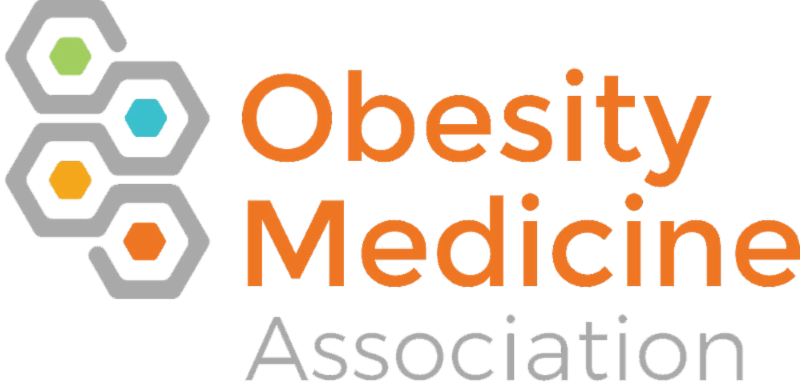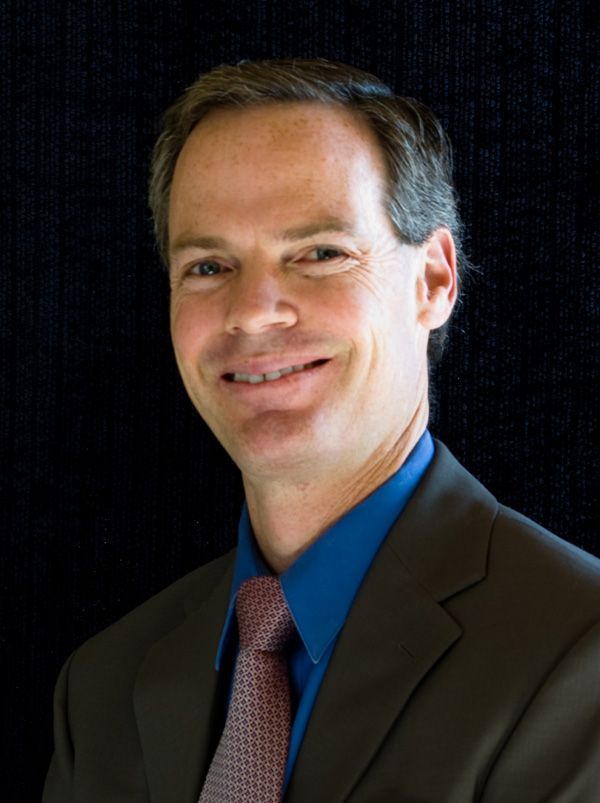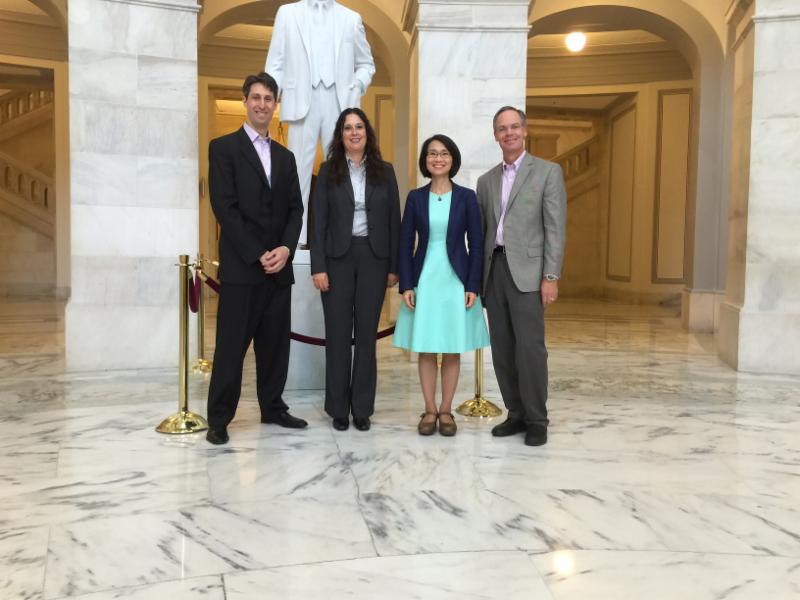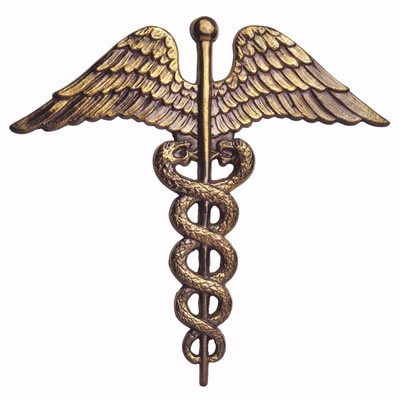Obesity Medicine e-Weekly
Watch for the unveiling of our newsletter's new look, coming next Tuesday!
|
|

We are proud to announce the launch of a new brand identity for the Obesity Medicine Association. Our new logo and brand were launched at a festive unveiling ceremony last week at Overcoming Obesity 2015 in Washington, D.C, which happened simultaneously with the official transition of our name from American Society of Bariatric Physicians to Obesity Medicine Association. The new logo represents a colorful new future for the organization. It emphasizes our four treatment pillars -- nutrition, physical activity, behavior, and medication -- and it reflects some of our core brand attributes: we practice clinical obesity medicine; we use a comprehensive treatment approach; we believe in science-based treatment; and we are progressive. As we grow and move forward, it is important that our identity not only supports our rich history but also paves the way for our promising future. For 65 years, we have been a sound voice within the medical and obesity treatment community, and we will continue to build on that reputation as the Obesity Medicine Association. We invite you to view our new identity and see how we've progressed. We are now online at www.obesitymedicine.org and on Facebook, Twitter, LinkedIn, and YouTube.
|
|
|
|
News
 Deadline to join a committee is Oct. 15
The committee enrollment period continues through Oct. 15 for the 2015-2016 committee term. Committees are a great way to get more involved, collaborate on projects that further the association's initiatives, and take the first step toward holding a leadership position. Both new and returning committee members must complete an application to participate on a committee during the coming year. Submit your completed application to membership@obesitymedicine.org before Oct. 15 to be considered; we will notify accepted candidates by Oct. 30.  Canadian Medical Association recognizes obesity as a disease Canadian Medical Association recognizes obesity as a diseaseToday the Canadian Medical Association (CMA) announced its decision to formally recognize obesity as a chronic disease. In a statement, CMA president Dr. Cindy Forbes said, "It is important for health care providers to recognize obesity as a disease so preventive measures can be put in place and patients can receive the appropriate treatment." With this announcement, we can continue to strengthen our partnership with the Canadian Obesity Network and work together to ensure that health care providers in North America know how to prevent, treat, and reverse the disease of obesity.
 United We Step national pedometer challenge United We Step national pedometer challenge
The American Society for Metabolic and Bariatric Surgery (ASMBS) Foundation challenges you to compete in the United We Step pedometer challenge, where the goal is to reach 42 million steps within a 24-hour period. The challenge will take place on Monday, Nov. 2. When you register, do so under the Obesity Medicine Association group because ASMBS will recognize the team with the most participants. Then, on Nov. 2, record your steps and submit your total by the end of the day. Learn more at www.unitedwestep.com.  OMA members honored at annual awards ceremony OMA members honored at annual awards ceremony
The annual awards ceremony took place at Overcoming Obesity 2015, where we honored and celebrated those who have worked tirelessly on behalf of OMA this year. Congratulations to each award recipient, and thank you for your continued service!
- This year's Fellow of the OMA was awarded to Dr. Eric Westman, who led our association through many tremendous changes during his presidency and continues to seek ways in which we can heighten ourselves within the health care community.
- The Obesity Medicine Clinician of the Year was awarded to Dr. Ethan Lazarus for his continued support of all things OMA as well as his commitment to changing how obesity is treated in this country through his work as the representative on the American Medical Association House of Delegates.
- The Dr. Vernon B. Astler Award was given to Dr. Brent Gear for his efforts to secure OMA's status as an American Osteopathic Association Category 1 CME sponsor.
- The Steelman-Seim Educator Award for Excellence in Academics was given to Dr. Richard Lindquist for his dedication to bringing obesity medicine education to physicians through the American Academy of Family Physicians.
- The Dr. Raymond E. Dietz Meritorious Service Award was given to Dr. Craig Primack because he helped OMA become better recognized among industry partners through his work setting up the Corporate Advisory Council.
- The Dr. Peter G. Lindner Award will be given to Dr. Frank Greenway, who has worked for years to ensure OMA's needs are met within the research community. (Dr. Greenway was not able to attend the awards ceremony.)
- The Committee Leadership Award will be given to Dr. Jenny Seger, who holds three committee chairperson positions and is an active member on many others. (Dr. Seger was not able to attend the awards ceremony.)
|
Member Spotlight
 Dr. Ethan Lazarus awarded Obesity Medicine Clinician of the Year
At the annual awards ceremony that took place at Overcoming Obesity 2015, Dr. Ethan Lazarus was awarded the Obesity Medicine Clinician of the Year. This award is one of OMA's most prestigious honors, and it was highly deserved by Dr. Lazarus. Here, he shares his story about getting involved in obesity medicine and thanks those who've helped along the way.
Dear OMA,
I was incredibly surprised and honored at the OMA awards ceremony on Oct. 3 in Washington, D.C., to be the recipient of the OMA Clinician of the Year Award.
Words cannot express my appreciation for this recognition. Nevertheless, I'd like to try.
I first joined OMA in 2004 to learn how to treat patients affected by weight medically. Today, my center treats 1,000 patients per month to help them to live longer, healthier lives, free to do the things they want to do. None of this would be possible without the OMA.
While I originally joined to learn how to practice obesity medicine, these days my goals are different. First, now that obesity is recognized as a disease, it's time we treat it like one. I'd like to see all health care providers receive basic training regarding obesity and be able to provide accurate information to their patients affected by weight. I'd like to see obesity receiving the same type of compassionate care as other medical problems like diabetes and depression. And I'd like to work towards reducing weight bias.
Second, I'd like to see improved physician satisfaction. Our ever changing and growing health care system leaves many physicians feeling lost and unsatisfied with their profession. I felt this way before I joined the OMA. Now, I love my work. Learning to manage obesity with patients has enhanced my life as a physician and resulted in a very high level of job satisfaction for me. I hope to share this with others because the practice of medicine should be a joy.
I gladly serve OMA because it works towards both of these objectives.
There are several people I need to thank in recognition of this award.
First, I'd like to thank the OMA board of trustees and executive committee. Had they not asked me to represent OMA at the American Medical Association (AMA), I would not have been able to influence the AMA on the important resolutions they have passed regarding obesity as a disease, coverage of obesity care services, and obesity education. Further, I want to thank Dr. Carolynn Francavilla for her work as the AMA alternate delegate, and my father, Dr. Jeremy Lazarus, for his guidance on how to get things done at the AMA.
Second, I'd like to thank the OMA staff. Their endless support makes it possible for me to be as involved as I am without it becoming overwhelming. You do a fabulous job!
Third, I'd like to thank the OMA membership. Thank you for letting me serve you first on the board of trustees and now as your secretary/treasurer. You have placed your trust in me; now let me serve you by continuing to advance the objectives of patient care and physician satisfaction. Without your support, I would not be in a position to make a difference on all these matters.
And finally, I need to thank my family. My beautiful wife Aimee for putting up with my grueling travel schedule. My older kids, Zoey (8) and Zachary (6), for still loving me even though I've missed this entire soccer season. And my baby, Sean (1), for not completely destroying the house during my trips. Without your support, daddy couldn't be doing all these things!
I will proudly display this award in a prominent spot in my new clinic.
Thank you!
|
Advocacy
 OMA sends 11 members to Capitol Hill
Last week at Overcoming Obesity 2015, we sent 11 attendees out to Capitol Hill for a day to meet with legislative staff and garner support for the Treat and Reduce Obesity Act, which would provide coverage of anti-obesity medications and allow reimbursement for non-primary care clinicians treating patients for obesity under Medicare. The 11 participants met with 18 different Senate offices to encourage more senators to co-sponsor the bill. The Treat and Reduce Obesity Act currently has 103 co-sponsors in the House and 10 co-sponsors in the Senate.
|
Foundation
 Foundation fundraiser raises $16,000 for obesity research and education
The Obesity Treatment Foundation thanks all who supported us during the cocktail party and silent auction fundraiser at Overcoming Obesity 2015 last week. The fundraising event raised more than $16,000, which helps us support our mission to advance obesity treatment through clinical research and education. During the event, we also announced the winner of the poster contest; Dr. Suzanne Cuda took the prize for her poster, titled "Do Decreases in Visceral Adipose Tissue Correlate with Physiologic or Metabolic Improvements in Children with Severe Obesity?" Start preparing your abstract for next year -- abstract submission opens June 1!
|
Resources

The Obesity Treatment Foundation (OTF) helps keep you up to date on current obesity research! Each week, OTF publishes a brief overview of three recent studies so you can be in the know, even during your busiest days. Click the titles below to view the full articles, and please consider supporting OTF so we can continue to provide you with updates on the latest research.
McDonald, L., et al. International Journal of Obesity, 2015.
Inadequate sleep during childhood significantly raises the risk of overweight and obesity. A study was conducted to test if shorter-sleeping children are more food responsive (FR), as assessed by the Child Eating Behaviour Questionnaire. This questionnaire assesses the degree to which a child shows a desire for food, specifically palatable foods. The study found a significant association between shorter sleep and higher FR at 5 years of age. Body mass index (BMI) at 5 years was associated with shorter sleep. The authors concluded that shorter sleep in childhood relates to greater desire for palatable foods, which may partly explain the relationship between shorter sleep and excess body weight in childhood.
Bays, H., and Scinta, W. Curr Med Res Opin, 2015.
The etiology of obesity is complex. It involves genetic, extragenetic and epigenetic disorders, in addition to neurobehavioral, medical, environmental, endocrine, and immune factors. This review article outlines extragenetic factors and genetic conditions that promote obesity. It also provides an overview of epigenetic dysregulation, which may contribute to obesity and adipose tissue abnormalities in offspring.
The heart failure overweight/obesity survival paradox: The missing sex link
Vest, A. R., et al. Journal of the American College of Cardiology Heart Failure, 2015.
A study was conducted in 3,811 patients with left ventricular ejection fraction greater than or equal to 40 percent who had undergone cardiopulmonary exercise testing between 1995 and 2011. The goal was to determine if BMI affects survival differently in females compared to males with advanced systolic heart failure (HF). The analysis found that there is an "obesity paradox" in heart failure for women; that is, women who were overweight or had mild obesity with heart failure lived significantly longer than females with a normal weight. This was not the case for males who were overweight versus normal weight with HF. The authors cautioned that this study only shows an association between weight and survival and does not prove that having obesity is why a woman with heart failure may live longer.
|
|
|
|
|
|
The Obesity Medicine Association and the Obesity Treatment Foundation thank our 2015 Corporate Advisory Council members for their continuous support.
|
©2015 Obesity Medicine Association. All rights reserved. Materials may not be reproduced, redistributed or translated without written permission.
Advertising disclaimer: Under a policy approved by the OMA Executive Committee and Exhibitor/Advertiser Review Committee, commercial companies may apply to advertise in association publications. Approval does not imply OMA endorsement or official recognition of particular products or services. This policy also applies to books and products marketed on behalf of OMA members.
|
|
|